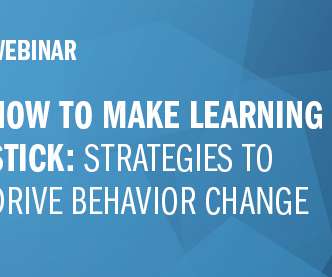The ROLE of Emotional Intelligence in Effective Leadership Today
The Center For Leadership Studies
NOVEMBER 23, 2020
Zig Ziglar is known for saying, “You must manage yourself before you can lead someone else.” In this time of unrest and change, the role of Emotional Intelligence (EI) in leadership has emerged as the critical skill set for leaders. At every level of the organization, EI’s pivotal role is to help the leader: Manage self.














Let's personalize your content